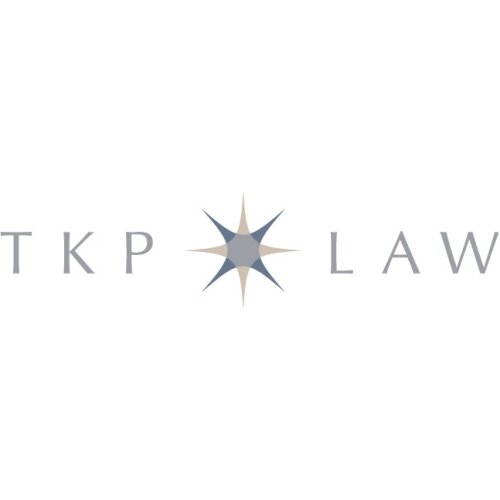Best Elder Abuse Law Lawyers in Tokyo
Share your needs with us, get contacted by law firms.
Free. Takes 2 min.
List of the best lawyers in Tokyo, Japan
About Elder Abuse Law in Tokyo, Japan:
Elder abuse is a serious concern in Japan, where the aging population is rapidly increasing. In Tokyo, as in the rest of Japan, elder abuse law is focused on the prevention, identification, and alleviation of abuse involving older adults. The system aims to offer protection through a combination of national and local statutes, welfare support frameworks, and coordinated efforts between government agencies and communities. Elder abuse can be physical, psychological, financial, or due to neglect, and it is crucial to address it adequately to ensure the safety and dignity of elderly individuals.
Why You May Need a Lawyer:
People may require legal assistance in elder abuse law for a variety of reasons, including:
- Identifying and proving instances of physical, emotional, or financial abuse.
- Seeking protective orders or legal injunctions against abuse.
- Understanding and navigating the complex legal framework surrounding elder abuse cases.
- Pursuing legal action against abusers, which can include family members, caregivers, or institutions.
- Ensuring proper care arrangements are made for the victim.
- Dealing with cases of neglect or inadequate care by nursing homes or healthcare providers.
Local Laws Overview:
In Tokyo, elder abuse laws are shaped by the national Elder Abuse Prevention Law, which provides a framework to address and prevent maltreatment against the elderly. Key aspects of these laws include:
- The requirement for caregivers and citizens to report suspected cases of elder abuse to local authorities.
- Penalties for those found guilty of abusing elder individuals, which may include fines and imprisonment.
- Implementation of elder protection guidelines by local governments and municipalities.
- Support measures for victims, such as counseling and temporary housing assistance.
Frequently Asked Questions:
What constitutes elder abuse under Japanese law?
Elder abuse includes physical harm, mental suffering, neglect, financial exploitation, and abandonment of elderly individuals.
Who can report elder abuse?
Anyone suspecting elder abuse, including relatives, neighbors, healthcare professionals, and social workers, is encouraged to report it to the relevant local authorities.
What steps can be taken if elder abuse is suspected?
If elder abuse is suspected, it should be reported to the local welfare office or the police. Immediate action may be necessary if the victim is in danger.
Can I remain anonymous when reporting elder abuse?
Yes, reports can be made anonymously, protecting the identity of the reporter.
What legal consequences do abusers face?
Consequences include criminal charges, penalties, fines, and possible imprisonment for those found guilty of elder abuse.
What support is available for victims of elder abuse?
Support can include counseling services, legal assistance, healthcare services, and temporary relocations to safer environments.
What role do local governments play in preventing elder abuse?
Local governments are responsible for implementing prevention programs, offering victim support services, and ensuring adequate training for caregivers.
Is there a statute of limitations on reporting elder abuse?
Yes, the statute of limitations may vary based on the type of abuse and the laws at the time of the incident, but legal advice should be sought as soon as possible.
Are there specific laws in Tokyo that address elder abuse?
Tokyo adheres to national laws but may have additional local ordinances and guidelines that enhance the protection and care of the elderly.
How can a lawyer assist in an elder abuse case?
A lawyer can help gather evidence, provide legal representation, guide through the legal process, and ensure that the victim's rights are protected.
Additional Resources:
There are several resources available for those seeking help in elder abuse cases in Tokyo:
- Tokyo Metropolitan Government Office
- The Japan Elder Abuse Prevention Center
- Local government social services departments
- Non-profit organizations specializing in elder care and protection
Next Steps:
If you or someone you know needs legal assistance in an elder abuse case, consider the following steps:
- Consult a lawyer who specializes in elder abuse law to understand your rights and options.
- Contact local authorities to report any suspected abuse immediately.
- Reach out to support groups and organizations that assist elder abuse victims for immediate support and counseling.
- Document any evidence of abuse, if possible, to support legal proceedings.
Lawzana helps you find the best lawyers and law firms in Tokyo through a curated and pre-screened list of qualified legal professionals. Our platform offers rankings and detailed profiles of attorneys and law firms, allowing you to compare based on practice areas, including Elder Abuse Law, experience, and client feedback.
Each profile includes a description of the firm's areas of practice, client reviews, team members and partners, year of establishment, spoken languages, office locations, contact information, social media presence, and any published articles or resources. Most firms on our platform speak English and are experienced in both local and international legal matters.
Get a quote from top-rated law firms in Tokyo, Japan — quickly, securely, and without unnecessary hassle.
Disclaimer:
The information provided on this page is for general informational purposes only and does not constitute legal advice. While we strive to ensure the accuracy and relevance of the content, legal information may change over time, and interpretations of the law can vary. You should always consult with a qualified legal professional for advice specific to your situation.
We disclaim all liability for actions taken or not taken based on the content of this page. If you believe any information is incorrect or outdated, please contact us, and we will review and update it where appropriate.










